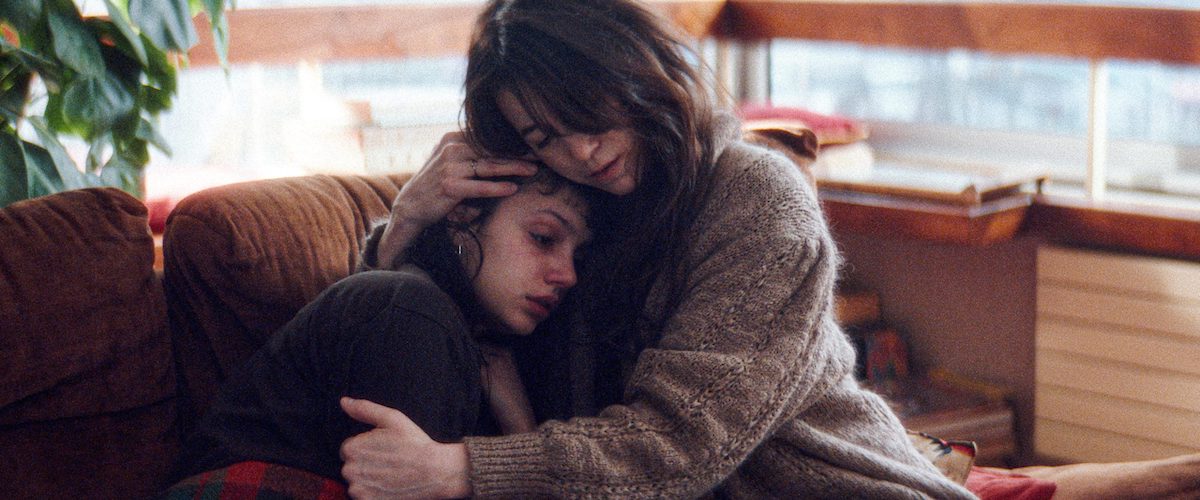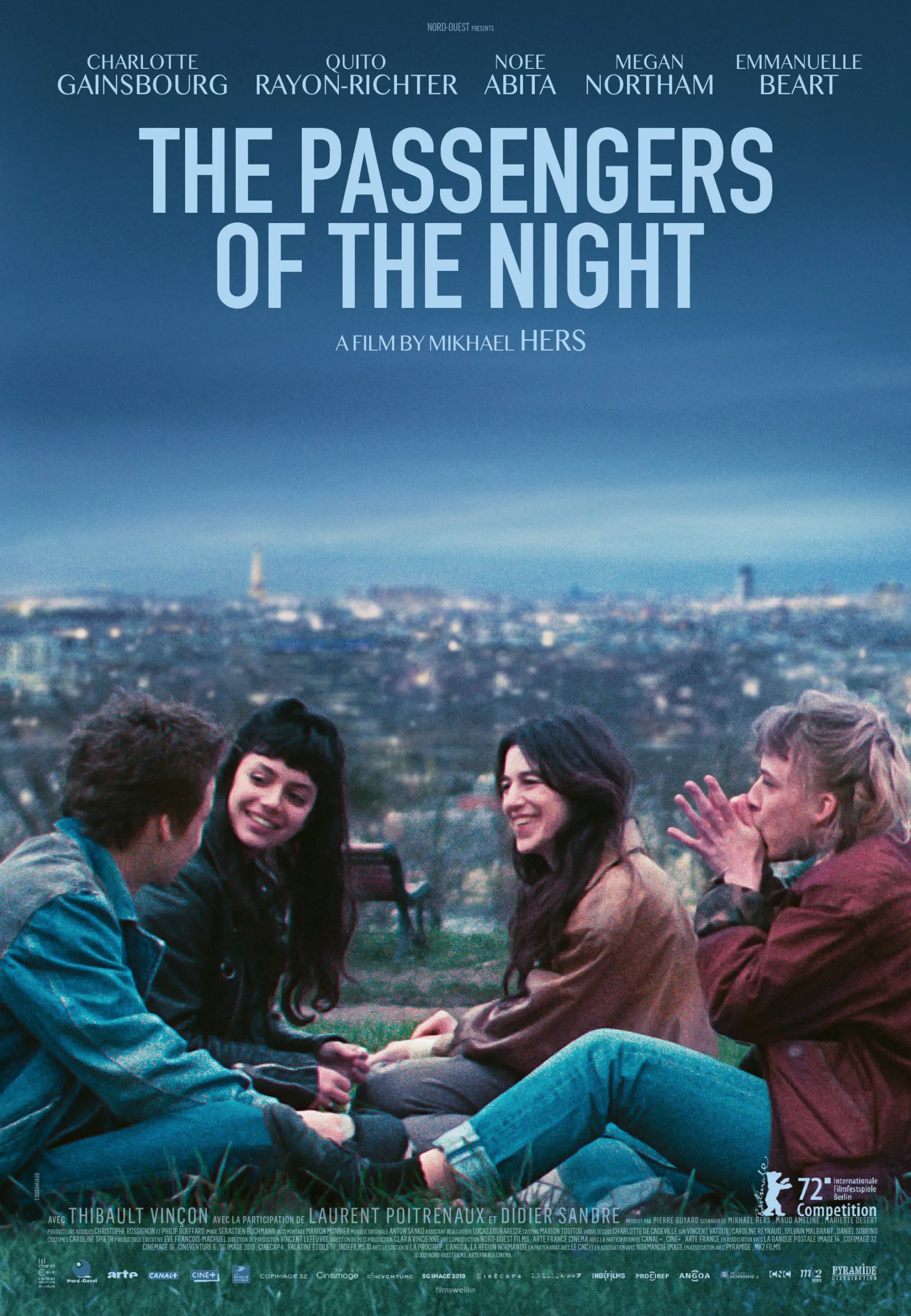Dramatic occurrences crop up throughout "The Passengers of the Night": a separation, a near-overdose, a workplace affair, a loss of virginity.
But director and co-writer Mikhaël Hers is just as interested in the rhythms of everyday life in 1980s Paris that provide the connective tissue between these events: kids riding bikes, a quiet conversation on a park bench, sneaking into a movie matinee, the Eiffel Tower in the pastel hues of dawn.
At the center of this low-key hang is Charlotte Gainsbourg as the newly single Elisabeth, effortlessly chic as always. She's the middle-aged mother of two teenagers, and she's searching for purpose and identity after her husband leaves her. Gainsbourg has long made herself vulnerable for the camera in her many film roles, but here she shows a tender fragility that steadily evolves into a warm, earthy confidence and even an unexpected sense of joy. It's a lovely performance.
"The Passengers of the Night" takes place from 1981—with jubilation in the streets over the election of President François Mitterrand—through 1988. But a constant throughout the movie's many life changes is the presence of the late-night radio show that gives the film its title. During the wee hours, people call in to share intimate, personal stories with the veteran star Emmanuelle Béart, formidable as ever, playing the host, Vanda.
Hers and cinematographer Sébastien Buchmann indicate Elisabeth's loneliness—and the way the radio show gets her through the night—by framing her in silhouette, standing before the expansive windows of her high-rise, corner apartment, gazing at the city's lights. It's a gauzy but arresting image. So taken is she with Vanda's program that she shows up at the station in the middle of the night and quickly accepts a low-paying job running the switchboard. You can feel how significant this human connection is; similarly, she'll find contentedness years later with a daytime job at the library. Helping others becomes a calling, and watching her subtly blossom is a real pleasure. Is she exhausted from working double duty with weird hours? This film can't be bothered with such realistic troubles.
The ease with which Elisabeth finds this job suggests early on how little interest Hers and co-writers Maud Ameline and Mariette Désert have in exploring conflict. Instead, they show us characters talking about books and films, listening to records, and smoking—always smoking. It is SO French. The younger of her two kids, 10th-grader Matthias (Quito Rayon Richter), wants to be a poet; her older sister Judith (Megan Northam) is a political activist. Everything is cool; there's never any parental judgment or interference.
Even the film's one potential source of tension or danger—Elisabeth's invitation to a young vagabond to stay with the family for a little while—turns out to be a pleasant addition. Eighteen-year-old Talulah (Noée Abita) came into the radio station to tell her story of dropping out of school and living on the streets of Paris. Maybe it's the mom in her, or maybe she relates to this sweet creature with her big, brown eyes and birdlike demeanor, but Elisabeth feels enough of an instant connection with this stranger to take her into her spare bedroom upstairs. Abita has a beguiling presence, reminiscent of a "Gia"-era Angelina Jolie. But even Talulah's warning to Matthias not to fall in love with her—"I'm not a girl for you," she says before beginning an ill-advised but inevitable fling with him—doesn't result in the kind of melodrama most films would include.
Allowing us to luxuriate within the languid pacing of this slice-of-life story is actually refreshing during these big, noisy summer days. The period-specific production and costume design are spot on and give the film a lived-in feel (Gainsbourg wears many belted, cowl-neck sweaters, but nothing ever feels like a flashy ‘80s parody). Hers includes various pieces of archival footage from the era to give a feel for what Paris was like back then and even includes home movie-style images of these characters in the same boxy aspect ratio, a nice touch that enhances the feeling we're watching a time capsule. And seeing Elisabeth find her voice within this realm—literally and metaphorically—is an understated delight.
Now playing in theaters.




















